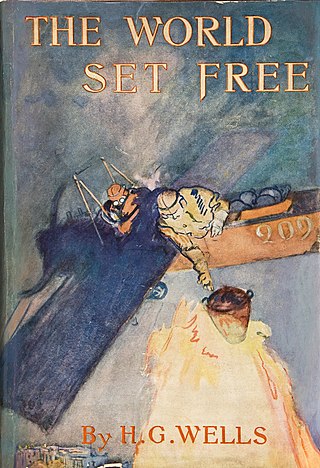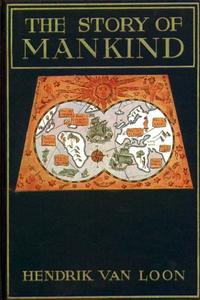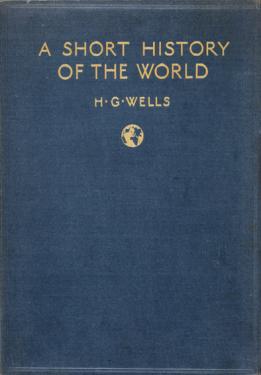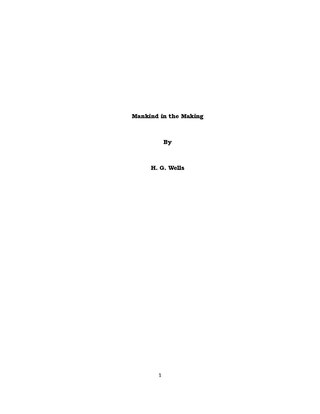Related Research Articles

Johannes Gensfleisch zur Laden zum Gutenberg was a German inventor and craftsman who invented the movable-type printing press. Though movable type was already in use in East Asia, Gutenberg's invention of the printing press enabled a much faster rate of printing. The printing press later spread across the world, and led to an information revolution and the unprecedented mass-spread of literature throughout Europe. It had a profound impact on the development of the Renaissance, Reformation, and humanist movements.

The Time Machine is an 1895 dystopian post-apocalyptic science fiction novella by H. G. Wells about a Victorian scientist known as the Time Traveller who travels approximately 800,806 years into the future. The work is generally credited with the popularization of the concept of time travel by using a vehicle or device to travel purposely and selectively forward or backward through time. The term "time machine", coined by Wells, is now almost universally used to refer to such a vehicle or device.

World Brain is a collection of essays and addresses by the English science fiction pioneer, social reformer, evolutionary biologist and historian H. G. Wells, dating from the period of 1936–1938. Throughout the book, Wells describes his vision of the World Brain: a new, free, synthetic, authoritative, permanent "World Encyclopaedia" that could help world citizens make the best use of universal information resources and make the best contribution to world peace.

The Gutenberg Bible, also known as the 42-line Bible, the Mazarin Bible or the B42, was the earliest major book printed in Europe using mass-produced metal movable type. It marked the start of the "Gutenberg Revolution" and the age of printed books in the West. The book is valued and revered for its high aesthetic and artistic qualities and its historical significance.

The World Set Free is a novel written in 1913 and published in 1914 by H. G. Wells. The book is based on a prediction of a more destructive and uncontrollable sort of weapon than the world has yet seen. It had appeared first in serialised form with a different ending as A Prophetic Trilogy, consisting of three books: A Trap to Catch the Sun, The Last War in the World and The World Set Free.

The Story of Mankind is a book written and illustrated by Dutch-American journalist, professor, and author Hendrik Willem van Loon. It was published in 1921. In 1922, it was awarded the Newbery Medal for an outstanding contribution to children's literature. This was the first year the Newbery Medal was awarded.

The Outline of History, subtitled either "The Whole Story of Man" or "Being a Plain History of Life and Mankind", is a work by H. G. Wells chronicling the history of the world from the origin of the Earth to the First World War. It appeared in an illustrated version of 24 fortnightly installments beginning on 22 November 1919 and was published as a single volume in 1920. It sold more than two million copies, was translated into many languages, and had a considerable impact on the teaching of history in institutions of higher education. Wells modelled the Outline on the Encyclopédie of Denis Diderot.

Little Wars is a set of rules for playing with toy soldiers, written by English novelist H. G. Wells in 1913. The book, which had a full title of Little Wars: a game for boys from twelve years of age to one hundred and fifty and for that more intelligent sort of girl who likes boys' games and books, provided simple rules for miniature wargaming. Although first printed in 1913, an updated version was released in 2004.

Floor Games is a book published in 1911 by H. G. Wells. This light-hearted volume argues in a humorously dictatorial tone that "The jolliest indoor games for boys and girls demand a floor." Illustrated with photographs and drawings, it briefly describes a number of games that can be played on "well lit and airy" floors with "four main groups" of toys: soldiers about two inches high, largish wooden bricks, boards and planks, and electric railway rolling stock and rails. Various remarks show that the book is based on Wells's experience of playing such games with his two sons, George Philip "Gip" Wells (1901–1985) and Frank Richard Wells (1903–1982), identified here only by their initials at their family home, 17 Church Row, in the north west London district of Hampstead.

The Rediscovery of Man: The Complete Short Science Fiction of Cordwainer Smith (ISBN 0-915368-56-0) is a 1993 book containing the complete collected short fiction of American science fiction author Cordwainer Smith. It was edited by James A. Mann and published by NESFA Press.

The Shape of Things to Come is a science fiction novel written by the British writer H. G. Wells published in 1933. It takes the form of a future history that ends in 2106.

Russia in the Shadows is a book by H. G. Wells published early in 1921, which includes a series of articles previously printed in The Sunday Express in connection with Wells's second visit to Russia in September and October 1920. Wells was at the height of his fame, having recently completed The Outline of History, and was paid £1000 for the articles by the Sunday Express. During his visit to Russia he visited his old friend Maxim Gorky, whom he had first met in 1906 on a trip to the United States, and who arranged Wells's meeting with Lenin.
Leon Eugene Stover was an American anthropologist, a Sinologist, and a science fiction fan, who wrote both fiction and nonfiction. He was a scholar of the works of H. G. Wells and Robert A. Heinlein and an occasional collaborator with Harry Harrison.

The Way the World Is Going is a 1928 nonfiction book written by British author H. G. Wells.

A Short History of the World is an account of human history by English author H. G. Wells. It was first published in 1922 by Cassell & Company (London) and The Macmillan Company. The book was preceded by Wells's fuller 1919 work The Outline of History, and was intended "to meet the needs of the busy general reader, too driven to study the maps and time charts of that Outline in detail, who wishes to refresh and repair his faded or fragmentary conceptions of the great adventure of mankind."

The Research Magnificent is a 1915 novel by H. G. Wells.

The World of William Clissold is a 1926 novel by H. G. Wells published initially in three volumes. The first volume was published in September to coincide with Wells's sixtieth birthday, and the second and third volumes followed at monthly intervals.

The Discovery of the Future is a 1902 philosophical lecture by H. G. Wells that argues for the knowability of the future. It was originally delivered to the Royal Institution on January 24, 1902. Before appearing in book form, it was published by Richard Gregory in Nature on February 6, 1902, and was also published as part of the Annual Report of the Smithsonian Institution. Available online.

An Englishman Looks at the World is a 1914 essay collection by H. G. Wells containing journalistic pieces written between 1909 and 1914. The book consists of twenty-six pieces ranging from five to sixty-two pages in length. An American edition was published the same year by Harper and Brothers under the title Social Forces in England and America.

Mankind in the Making (1903) is H.G. Wells's sequel to Anticipations (1901). Mankind in the Making analyzes the "process" of "man's making," i.e. "the great complex of circumstances which mould the vague possibilities of the average child into the reality of the citizen of the modern state." Taking an aggressive tone in criticizing many aspects of contemporary institutions, Wells proposed a doctrine he called "New Republicanism," which "tests all things by their effect upon the evolution of man."
References
- ↑ Adams, J. Mckee (1 October 1921). "Book Review: The Salvaging of Civilization: The Probable Future of Mankind". Review & Expositor. 18 (4): 486–488. doi:10.1177/003463732101800427. S2CID 170283084.
- ↑ Staff (August 1921). "Review: The Salvaging of Civilization by H. G. Wells". Advocate of Peace Through Justice. 8 (83): 319. JSTOR 20659809.
- ↑ Staff (August 1921). "Review". The North American Review . 214 (789): 285–287 (3 pages). JSTOR 25120816.
- ↑ Stewart, Herbert (6 August 1921). "Book Reviews: The Probable Future of Mankind". The Weekly Review. 5 (117): 125–126. Free download
- ↑ H.G. Wells (1921). "The Salvaging of Civilization". Project Gutenberg (October 29, 2010). Retrieved 26 April 2020. Full text available. See table of contents